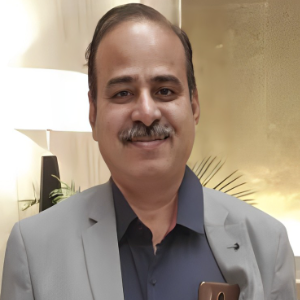Leprosy primarily affects the skin and peripheral nerves but can also involve other organs such as the eyes and mucous membranes. Leprosy is transmitted through respiratory droplets from untreated individuals with the active form of the disease, although it is not highly contagious. The disease has a long incubation period, ranging from months to years, making diagnosis and treatment challenging. Leprosy presents with a spectrum of clinical manifestations, from mild skin lesions to severe nerve damage and deformities. Classification systems categorize leprosy based on the number of skin lesions and the presence of nerve involvement. Multidrug therapy (MDT), consisting of antibiotics such as rifampicin, dapsone, and clofazimine, is highly effective in treating leprosy and preventing its transmission. Early diagnosis and prompt treatment are crucial to prevent irreversible nerve damage and disabilities. Stigma and discrimination against individuals affected by leprosy have been significant challenges throughout history. Efforts to raise awareness, reduce stigma, and integrate affected individuals into society are essential for improving their quality of life and access to care. Global efforts, led by organizations like the World Health Organization (WHO) and the International Federation of Anti-Leprosy Associations (ILEP), aim to eliminate leprosy as a public health problem by providing access to early diagnosis, treatment, and rehabilitation services worldwide. Despite significant progress, leprosy remains endemic in some regions, emphasizing the importance of continued surveillance and control efforts.

Ravi M Rathod
KMCRI, India
Dechelette Corinne
La Peau Autrement, France
Irina Sergeeva
Novosibirsk State University, Russian Federation
George Sulamanidze
Plastic Surgeon at Clinic of Plastic and Aesthetic Surgery and Cosmetology TOTALCharm, Georgia
Nino Tsamalaidze
Ltd Karabadini+, Georgia
Lina Petrossian
California University of Science and Medicine, United States
Surajbala Khuraijam
Manipur Health Services, India
Shrutimita Pokhariyal
Symbio, India
Yasser Mohammed Hassanain Elsayed
Egyptian Ministry of Health, Egypt



Title : Paraneoplastic Autoimmune Multiorgan Syndrome or PAMS: Paraneoplastic pemphigus revisited
Sergei A Grando, University of California Irvine, United States
Title : Modern non-invasive methods for in vivo assessment of skin
Georgios N Stamatas, SGS, France
Title : Personalized and precision dermatology through the view of biodesign-inspired translational & data-driven applications: Revolutionary skin treatments for every concern in clinical dermatology integrating skin care experts and consumers
Sergey Suchkov, N.D. Zelinskii Institute for Organic Chemistry of the Russian Academy of Sciences, Russian Federation
Title : The next generation of threads: Lifting, volumization, and biostimulation in one powerful triple action
George Sulamanidze, Plastic Surgeon at Clinic of Plastic and Aesthetic Surgery and Cosmetology TOTALCharm, Georgia
Title : Lymphoproliferative diseases in the practice of a dermatologist
Irina Sergeeva, Novosibirsk State University, Russian Federation
Title : Art, skin, and dermatology: Interdisciplinary perspectives
Dechelette Corinne, La Peau Autrement, France
Title : Comparative efficacy of omalizumab and dupilumab in children with Chronic Spontaneous Urticaria (CSU): A retrospective cohort analysis
Molynna Nguyen, University of Toledo, United States
Title : "Mirror mirror on the skin” — A low-cost community strategy to reduce melanoma disparities in Washington, D.C.
Kayla Sampson, Georgetown University School of Medicine, United States
Title : Vitiligo: Not just an aesthetic disorder
Mateja Starbek Zorko, University Medical centre Ljubljana, Slovenia
Title : Personalized and Precision Medicine as a unique avenue to have the healthcare model renewed to secure the national biosafety: Advanced skincare solutions in individualized cosmetology, reconstructive plastic surgery and the modern beauty
Sergey Suchkov, N.D. Zelinskii Institute for Organic Chemistry of the Russian Academy of Sciences, Russian Federation